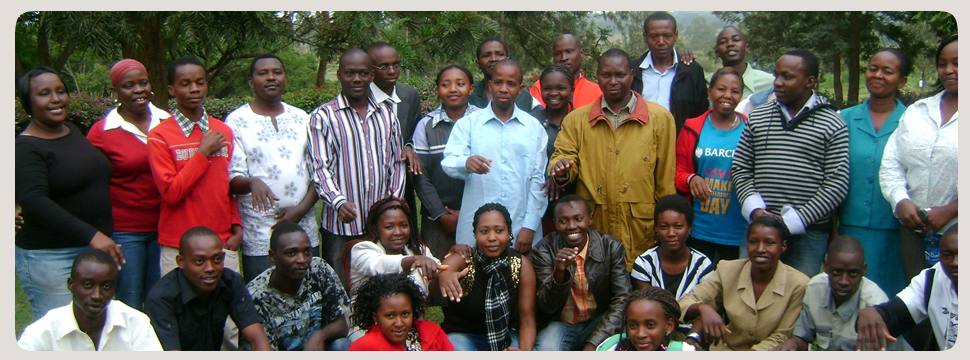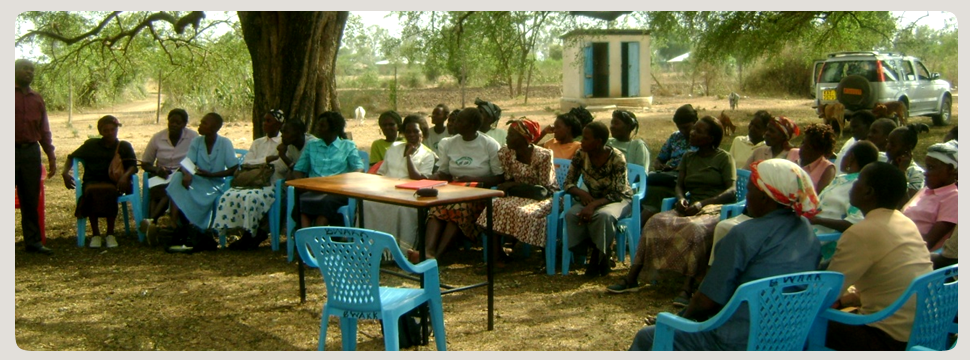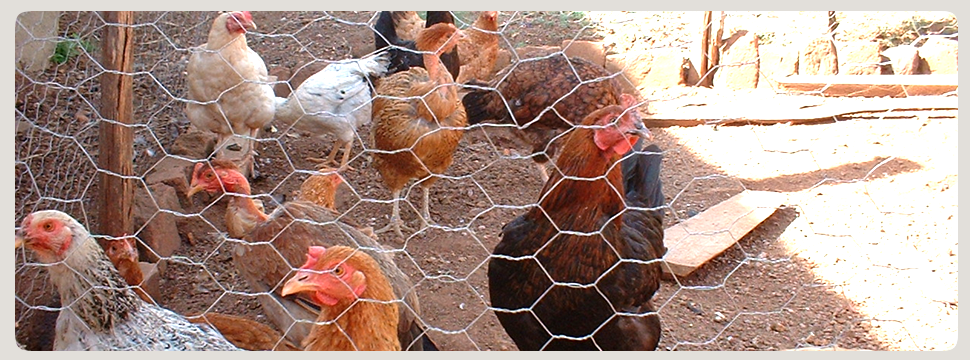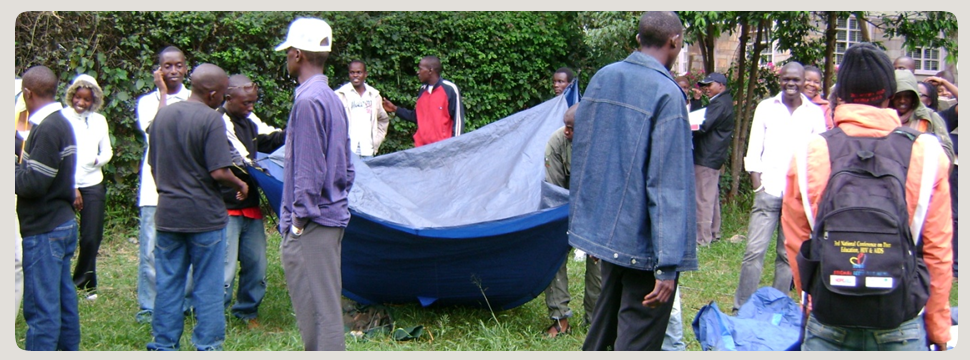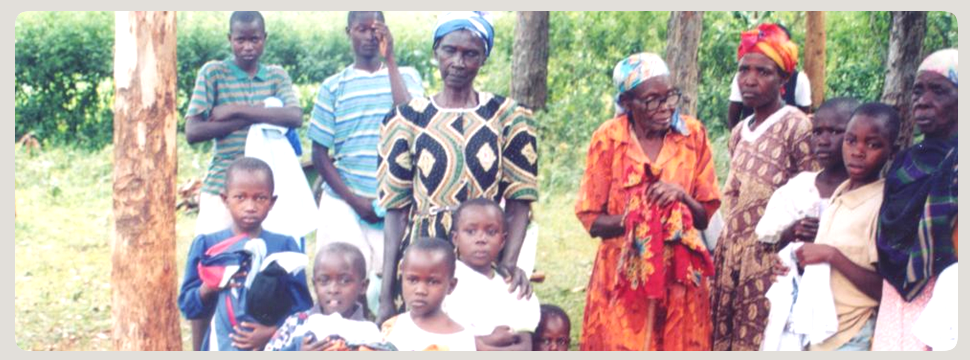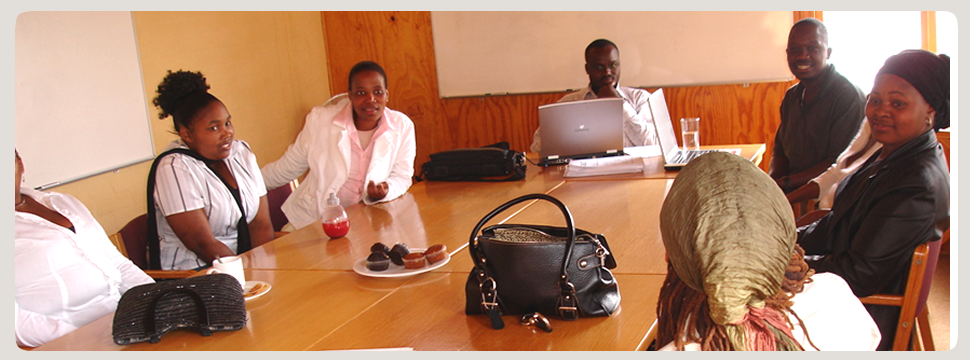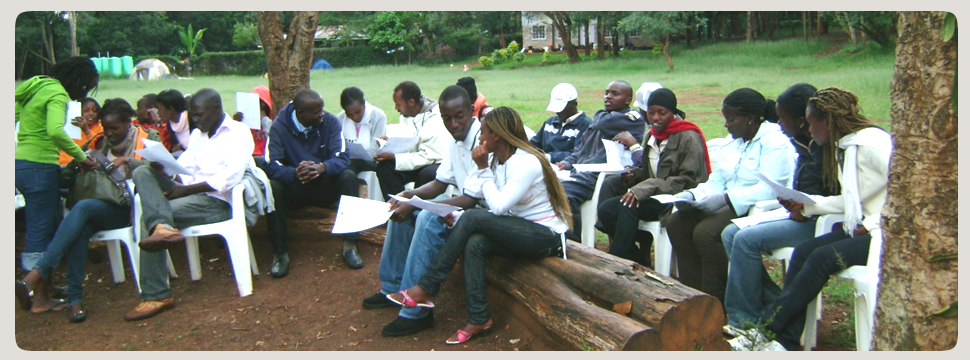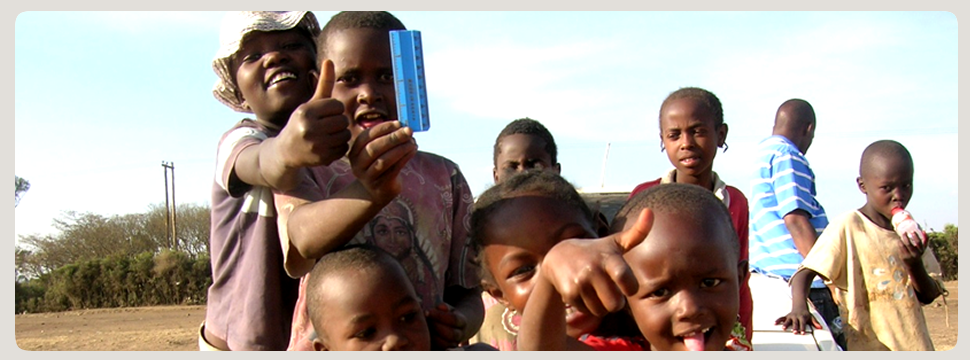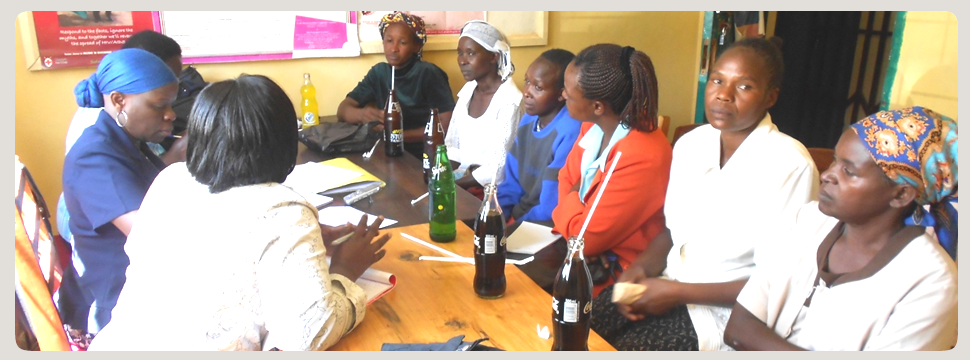CCBI plays a key role of assisting communities towards a food secure and prosperous future, achieved through effective, efficient and sustainable agricultural growth based on smallholder farmers.
CCBI equips communities with the right knowledge and knowhow and primarily engages the target groups in the production of staple food crops for attainment of food security at community and national levels, and skills for production of crops that may be produced for increasing family income. Through its activities, CCBI improves the production of food, and works towards reducing the proportion of the population that is food deficient, increasing access to food in the right quantity and quality and reducing malnutrition among rural communities.
Some areas of agricultural production for security in which CCBI actively participates in are production of stale food crops, vegetable production and poultry production.
In Kenya, chickens play a key role in providing quality meat and eggs as food and cash income from the sales of the products, and are an important step in reducing malnutrition and enhancing food security among rural communities. Indigenous chicken therefore form a large and solid base upon which further improvement can be built for stability in food security and reduction of poverty. Further they also constitute a base resource that can be used for the improvement of rural livelihood with limited external input.
However, with a little extra effort in management and genetic selection, indigenous chickens have the potential of increasing their egg yields, meat production and marketability, and therefore enhance food security and reduce malnutrition. The challenge is to put in place appropriate poultry production policies, strategies and programmes that will encourage production and productivity.
CCBI provides farmers the demonstrated empowerment on the benefits to be derived from the poultry production activities and processes. CCBI therefore enhances farmers’ knowledge and skills in poultry production including construction of poultry production units, poultry management, disease prevention and marketing of poultry products.
Roughly, between 45-60% of horticultural producers in Kenya are small and medium scale farmers. Some 60,000 farming families and up to 3.5 million Kenyans out of a total population of 43.6 million depend directly or indirectly on export vegetables for their living.
This strong attachment to vegetable production provides an opportunity to strengthen and improve the production processes and utilization among the communities especially in rural areas.
Climate change is a critical global challenge and recent events have demonstrated the world’s growing vulnerability to climate change. The impacts of climate change range from affecting agriculture to further endangering food security, to rising sea-levels and the accelerated erosion of coastal zones, increasing intensity of natural disasters, species extinction and the spread of vector-borne diseases.
CCBI expounds on vulnerability of communities to the risks associated with climate change, and works with communities to mitigate against factors that aggravate social and economic challenges, particularly among those segments of the population that are dependent on resources that are sensitive to changes in climate, such as pastoralism and rain-fed agriculture.
Humans depend on biodiversity for food. Our large part of biodiversity is located in the ancestral lands of indigenous people and the indigenous people are the primacy right owners of biodiversity. Any plans for sustainable development for biodiversity in their territory or their knowledge need their participation and consultation.
All the 42 different ethnic groups have a rich indigenous knowledge base with deep knowledge of medicinal plants, food resources and domestic animals, unique to each community. CCBI inspires communities to understand their potentials in IK, and links this knowledge to modern science and medicine.
Many farming communities suffer from reduced crop harvests due to extreme weather, an unpredictable rainy season, and extended periods of drought. This is leading to a reduction of food security, increased malnutrition, and increased poverty. CCBI runs a community-based adaptation programme that improves crop harvests through a farmer soil and water conservation program, and an integrated farmer-based extension programme. This will increase the levels of food security, decrease malnutrition and increase farm incomes.
The climate smart agricultural practices programme helps address extreme events of floods and droughts, and unpredictable rainfall patterns by allowing use of resilient and improved agricultural techniques with traditional knowledge including mapping out of water and land resources and use to allow coping with changes in agricultural cycles, vulnerabilities and coping strategies.
CCBI organizes community workshop on participatory mapping of water and land resources and uses help farmers to better cope with agricultural challenges and vulnerabilities—and degraded hotspots. CCBI also works with communities towards Community based Animal Control as an adaptation tool to cope with climate change.
Credit constraint and inadequate information: CCBI connects farmers with an extension agent, and local credit schemes that help in identifying local funding schemes and information dissemination especially on early warning system and types of crops to plant when climate varies. This enable farmers overcome credit and information and adopt to both short- and long-term adaptation measures.
CCBI is also key towards interlinks between the government and the farmer on climate change adaptation strategies, including monitoring climate change and disseminating information to farmers.
This CCBI programme enhances the capacity of the local communities to adapt to climate change through enhancing capacity and ability to buy and store food during the years of favorably weather and good harvest and sell foods during periods of poor harvest. They will therefore have food and income all year through.
CCBI equips communities with the right knowledge and knowhow and primarily engages the target groups in the production of staple food crops for attainment of food security at community and national levels, and skills for production of crops that may be produced for increasing family income. Through its activities, CCBI improves the production of food, and works towards reducing the proportion of the population that is food deficient, increasing access to food in the right quantity and quality and reducing malnutrition among rural communities.
Some areas of agricultural production for security in which CCBI actively participates in are production of stale food crops, vegetable production and poultry production.
In Kenya, chickens play a key role in providing quality meat and eggs as food and cash income from the sales of the products, and are an important step in reducing malnutrition and enhancing food security among rural communities. Indigenous chicken therefore form a large and solid base upon which further improvement can be built for stability in food security and reduction of poverty. Further they also constitute a base resource that can be used for the improvement of rural livelihood with limited external input.
However, with a little extra effort in management and genetic selection, indigenous chickens have the potential of increasing their egg yields, meat production and marketability, and therefore enhance food security and reduce malnutrition. The challenge is to put in place appropriate poultry production policies, strategies and programmes that will encourage production and productivity.
CCBI provides farmers the demonstrated empowerment on the benefits to be derived from the poultry production activities and processes. CCBI therefore enhances farmers’ knowledge and skills in poultry production including construction of poultry production units, poultry management, disease prevention and marketing of poultry products.
Roughly, between 45-60% of horticultural producers in Kenya are small and medium scale farmers. Some 60,000 farming families and up to 3.5 million Kenyans out of a total population of 43.6 million depend directly or indirectly on export vegetables for their living.
This strong attachment to vegetable production provides an opportunity to strengthen and improve the production processes and utilization among the communities especially in rural areas.
Climate change is a critical global challenge and recent events have demonstrated the world’s growing vulnerability to climate change. The impacts of climate change range from affecting agriculture to further endangering food security, to rising sea-levels and the accelerated erosion of coastal zones, increasing intensity of natural disasters, species extinction and the spread of vector-borne diseases.
CCBI expounds on vulnerability of communities to the risks associated with climate change, and works with communities to mitigate against factors that aggravate social and economic challenges, particularly among those segments of the population that are dependent on resources that are sensitive to changes in climate, such as pastoralism and rain-fed agriculture.
Humans depend on biodiversity for food. Our large part of biodiversity is located in the ancestral lands of indigenous people and the indigenous people are the primacy right owners of biodiversity. Any plans for sustainable development for biodiversity in their territory or their knowledge need their participation and consultation.
All the 42 different ethnic groups have a rich indigenous knowledge base with deep knowledge of medicinal plants, food resources and domestic animals, unique to each community. CCBI inspires communities to understand their potentials in IK, and links this knowledge to modern science and medicine.
Many farming communities suffer from reduced crop harvests due to extreme weather, an unpredictable rainy season, and extended periods of drought. This is leading to a reduction of food security, increased malnutrition, and increased poverty. CCBI runs a community-based adaptation programme that improves crop harvests through a farmer soil and water conservation program, and an integrated farmer-based extension programme. This will increase the levels of food security, decrease malnutrition and increase farm incomes.
The climate smart agricultural practices programme helps address extreme events of floods and droughts, and unpredictable rainfall patterns by allowing use of resilient and improved agricultural techniques with traditional knowledge including mapping out of water and land resources and use to allow coping with changes in agricultural cycles, vulnerabilities and coping strategies.
CCBI organizes community workshop on participatory mapping of water and land resources and uses help farmers to better cope with agricultural challenges and vulnerabilities—and degraded hotspots. CCBI also works with communities towards Community based Animal Control as an adaptation tool to cope with climate change.
Credit constraint and inadequate information: CCBI connects farmers with an extension agent, and local credit schemes that help in identifying local funding schemes and information dissemination especially on early warning system and types of crops to plant when climate varies. This enable farmers overcome credit and information and adopt to both short- and long-term adaptation measures.
CCBI is also key towards interlinks between the government and the farmer on climate change adaptation strategies, including monitoring climate change and disseminating information to farmers.
This CCBI programme enhances the capacity of the local communities to adapt to climate change through enhancing capacity and ability to buy and store food during the years of favorably weather and good harvest and sell foods during periods of poor harvest. They will therefore have food and income all year through.
Strengthen community programs in health, agriculture and the environment, and thus improve community health and food security for sustained development
Communities living in prosperity in a healthy environment, and under sustained development
Communities living in prosperity in a healthy environment, and under sustained development
